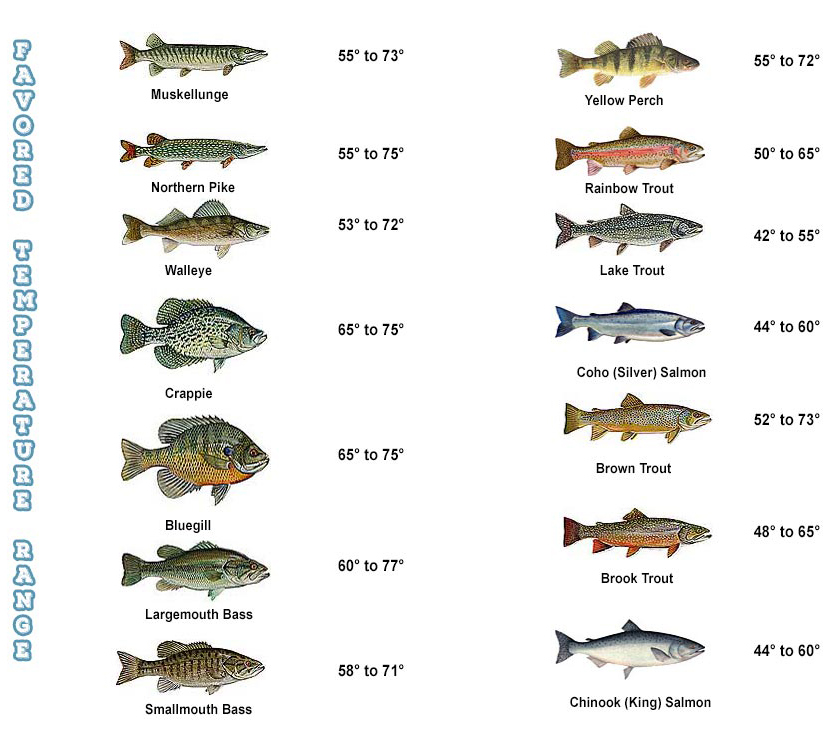By: MisterTwister.com Staff
There’s no simple answer to the question, “Why do fish bite?” Many variables are involved. Two of the most important conditions dictating fish feeding activity are:
1. Water Temperature
2. Oxygen Content
Water Temperature & Oxygen Content
Water consists of two parts hydrogen for every one-part oxygen. However, this oxygen is not used by the fish. They breathe the excess oxygen in the water. High barometric pressure forces more oxygen into the water than low barometric pressure. Also, wave action or current exposed more surface area, thus raising the oxygen content.
Growing plants give off abundant oxygen. Cold water has the ability to hold more oxygen than warm water. Hot summer temperatures can heat water so it won’t hold enough oxygen to maintain fish life.
Oxygen content and water temperature go hand in hand; just like a reel goes with your fishing rod Fish are cold blooded and take on the temperature of their surroundings.
Why Fish Become Inactive
In cold water, enzymes that digest the food a fish eats are very slow acting. Therefore, it takes quite a while for a fish’s meal to be completely utilized and the fish are inactive. As the water warms, these enzymes become more active and fish eat more often.
The oxygen and temperature factors will finally reach a point where a fish’s digestive system functions quickly. However warm water does not contain much excess oxygen, which fish need. When it gets too warm and oxygen levels drop, fish become sluggish and inactive.
Favored Temperature Ranges
Listed below are the favored temperature ranges where digestive systems function best, and the oxygen content is high enough. Usually, the best conditions exist in the middle of the range.

Thermocline & Structure
During warm months many lakes develop a thermocline. The top layer of water differs significantly from the colder water below. The top layer of water may be 15 feet deep. Water below that depth may drop 10 or 15 degrees.
High oxygen content exists just above where the cold and warm water meet. This can be the key to success. The thermocline will be the same depth over the entire lake. It varies from lake to lake. If you can find areas where the thermocline meets weeds, rocks bars, structure or cover, you will almost be sure to find fish present.